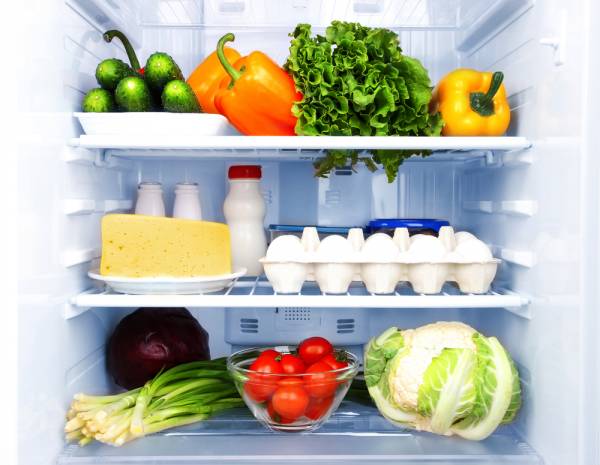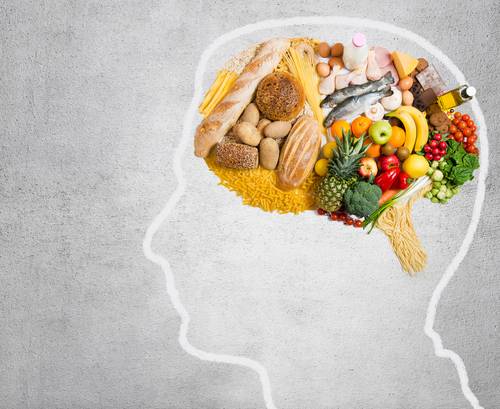Everyone’s knows about anorexia and bulimia in regards to disordered eating, but there is a new “healthy” eating disorder becoming increasingly prevalent within the fitness industry, orthorexia nervosa.
Orthorexia, although not yet recognized as an official eating disorder by the American Psychological Association, has been defined as “a maniacal obsession for healthy food” and is being unofficially “diagnosed” at increasing rates, possibly coinciding with the increasing rates of body culture and growth in bodybuilding, along with sports such as powerlifting and CrossFit.4
As a figure competitor and nutrition coach, I know from experience the challenges that maintaining a restricted diet can have, not only physically, but mentally and emotionally. Although the commitment to diet is crucial for both competitors and athletes, there’s a fine line between success and obsess, and I can’t stress the importance of balance and moderation enough.
Ortho-What?
Orthorexia (orthos: proper, orexia: appetite) generally has less to do with food quantity and more to do with food quality. This is unlike other eating disorders, such as anorexia and bulimia, where in sufferers fixate on the restriction and control of food volume.2
“Orthorexia is characterized by a negative impact or loss of social relationships, emotional dissatisfaction, and constant and obsessive thought about food.”
Orthorexia was coined by Dr. Steven Bratman to describe the obsession of consuming foods only if they were “pure,” “clean,” and “organic,” leading sufferers to avoid certain foods that did not fit these descriptions and risked “contamination.” With athletes and competitors, the obsession is focused more on the effect of foods on the external physique and appearance, as opposed to the original internal focus for health and “purity.” Regardless of the individual’s reasoning, the characteristics are the same and lead to undue social and psychological stress, as well as potential nutritional deficiencies.1
The problem in the body culture, which I am immersed in daily, is that what originally begins as a diet in order to make a lifestyle change or reach a personal goal may easily become an obsession and stressor. As Bratman stated in the original article on the topic, “[I]t takes considerable will power to adopt a diet which differs radically from the food habit of childhood and surrounding culture, few accomplish this change gracefully.” Instead, many take it to either end of the extreme, which soon leads to obsessive-compulsive tendencies.
RELATED: Why Dieting Is Harmful to Your Health
Orthorexia is characterized by a negative impact or loss of social relationships, emotional dissatisfaction, and constant and obsessive thought about food. The behavior begins with a positive impact on an individual’s life, specifically for a competitor or athlete, but the diet eventually becomes the most important part of an orthorexic’s life as he or she loses balance.

Do I Have It? A Cost-Benefit Analysis
The characteristics described above generally sum up the feelings most competitors have in preparing for a weight-class event. Adhering to a restricted diet of whole foods that must be weighed, measured, and timed could easily be considered obsessive, and probably is.
RELATED: The Difference Between Fear and Love In Fitness
The differentiating factor when assessing whether you’ve taken your dietary focus too far is whether or not it’s transitory. If you’re committing yourself to a strict regimen for a set preparation period – potentially avoiding social outings so you don’t face plant into a plate of chicken wings, having mood swings because Food Network commercials won’t stop coming on your TV, and constantly seeking #foodporn on Instagram – it’s likely that upon returning to a more balanced off-season schedule equilibrium will be achieved.
The problem occurs for those who are unable to transition back into to a healthy and balanced lifestyle after an event. The dietary obsession becomes one of long-term duress and leads to decreased quality of life and general social distress.
“You can, in fact, achieve dietary success while continuing to enjoy the events and activities you always have together.”
Although providing a “diagnosis” for orthorexia for a competitors and athletes may be a gray area due to the demands of the sports, the proposed diagnostic testing criteria include some of the following questions:
- Do you look down on others who don’t eat this way?
- Do you spend more than three hours a day thinking about healthy foods?
- Does the diet make it difficult for you to eat anywhere but at home, distancing yourself from family and friends?
According to the professionals, if you answer “yes” to two or more of these questions you maybe suffering orthorexia. I honestly can’t say I know any competitors who would pass that test. But if the items you respond “yes” to cause you anxiety and potentially interfere with your day-to-day activities, home life, and quality of life, then I believe the dietary choices you have made may be of concern.
RELATED: 6 Daily Practices For Learning to Love Your Body and Yourself
If, in answering yes to a number of these questions, you don’t believe your diet’s negatives outweigh the benefits, it may be time to re-evaluate. It’s important that in the off-season there are fewer “yes” responses. This demonstrates that an individual is maintaining a realistic and healthy lifestyle throughout the year and not developing obsessive compulsions.

Achieving Balance and Maintaining Normalcy
Although many bodybuilders and athletes commit a large portion of their day to maintaining a proper diet, preparing meals, and focusing on their diet plan, by practicing moderation and occasional indulgence, I believe disorder can be avoided.
“The differentiating factor when assessing whether you’ve taken your dietary focus too far is whether or not it’s transitory.”
But it is with increasing frequency that I come in contact with athletes and competitors, both male and female, who hover, if not cross the line in a way that is no longer beneficial to body or mind. The inability to practice balance and moderation can lead to an individual’s quality of life no longer being enhanced by their choice of dietary style.
As a competitor, there have been times I would have preferred to stay home instead of being exposed to foods I am unable to have, but because I know this lifestyle is my choice, I make adjustments and compromises to maintain social normalcy and relationships.
RELATED: 5 Steps to Developing Self-Awareness
I find a way to enjoy the company of my friends and family and do not hold my dietary choices over the heads of others. Plan “free meals” with friends and family and make an outing of them, opt for a meal out if you are able to cater it to your program, or offer an alternative activity to do as a group where you can enjoy each other’s company despite your diet. You can, in fact, achieve dietary success while continuing to enjoy the events and activities you always have together.
5 Ways to Maintain Balance
- Avoid cutting out entire food groups and/or macronutrients for extended periods of time.
- Don’t turn down social outings and stay home from events due to your diet.
- Have a timeline and detailed plan for how and when you will re-implement restricted foods.
- Implement cheat meals/refeeds to maintain the ability to digest all foods and avoid deficiencies.
- If stuck without a meal, make due with what’s available instead of skipping meals completely.
RELATED: Why Are You Eating That Way?
If your diet is no longer bettering your life and is causing anxiety, then please don’t hesitate to seek professional help to aid you in returning to a healthy and balanced lifestyle.
References:
1. Bratman, S. “Health Food Junkie,” Yoga Journal. 1997; October.
2. Boncachea, B., Zamora, M., Sanchez, G., & Rial, R. “Orthorexia nervosa: A new eating behavior disorder? ” Actas Esp Psiquiat. 2005; 33(1): 66-68.
3. Davis, J. “Orthorexia: Good Diets Gone Bad.” WebMD News Archive. 2000: 1-4.
4. Donini, L.M., Marsili, D., Graziani, M.P., Imbriale, M., & Cannella, C. “Orthorexia nervosa: A preliminary study with a proposal for diagnosis and an attempt to measure the dimension of the phenomenon.” Eating Weight Disorders. 2004; vol 9: 151-157.
Photo 1 courtesy of Jorge Huerta.
Photos 2, 3 and 4 courtesy of Shutterstock.






